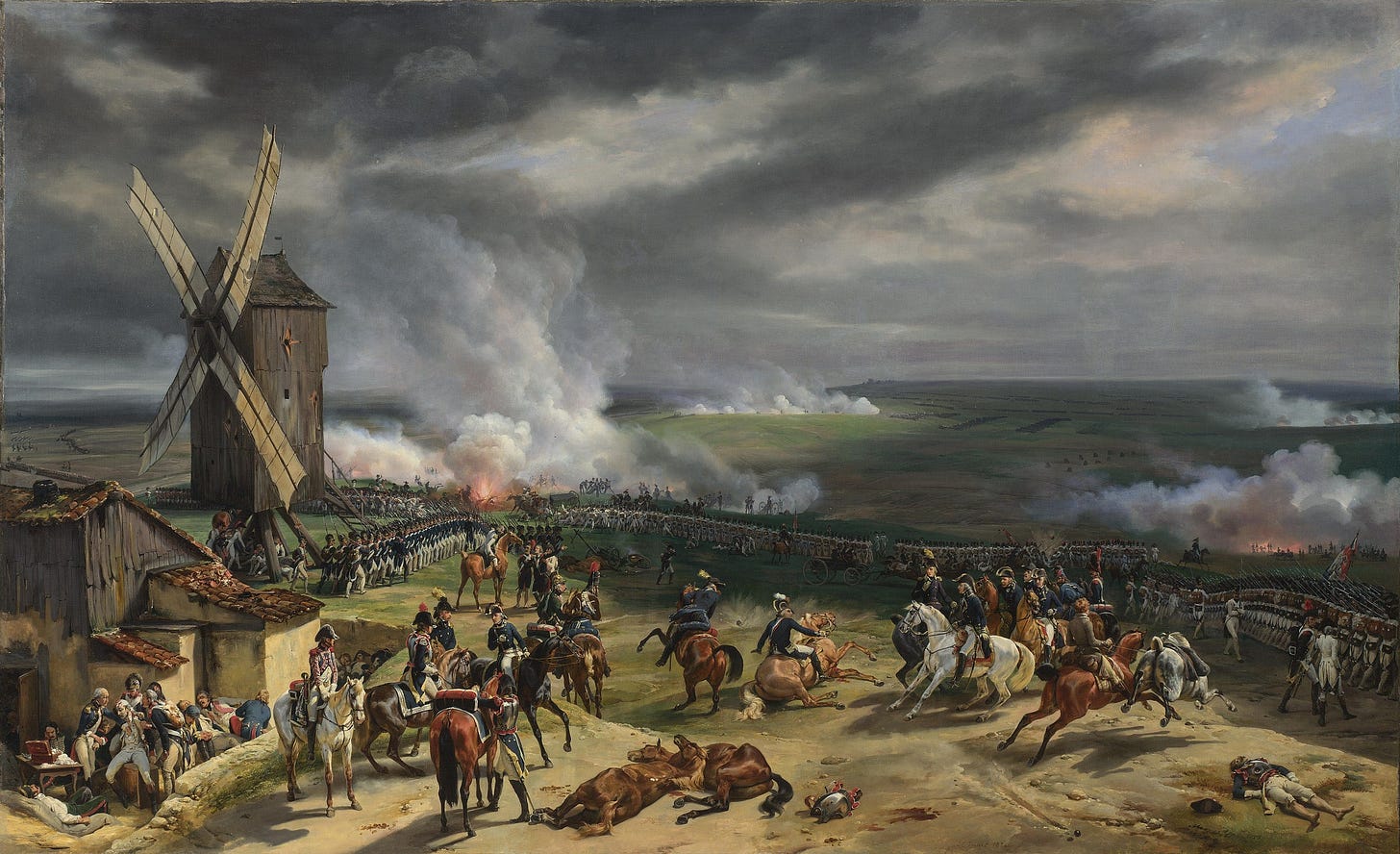Today in History: September 19-21
An Arab army takes Damascus, Magellan's expedition sets sail, and more
If you’re interested in history and foreign affairs, Foreign Exchanges is the newsletter for you! Sign up for free today for regular updates on international news and US foreign policy, delivered straight to your email inbox, or subscribe and unlock the full FX experience:
Hey folks, I’m taking a badly needed break from the newsletter and will return to normal programming on September 28. Thanks for reading!
September 19, 634: The siege of Damascus ends with the Arabs conquering the city, one of the most important in the Byzantine Empire at the time. One of the first major victories of the Arabs’ 7th century conquests, primary sources say that the siege ended when the Arab commander, Khalid ibn al-Walid, took advantage of a celebration inside the city to exploit an undefended portion of the wall. To that point the siege had more or less stalemated as the Arabs lacked proper siege machinery. It’s suggested that Khalid was tipped off by a Monophysite Damascene priest, which if true highlights the sectarian problem that the Byzantines faced throughout the Levant and Egypt.
September 19, 1356: An English-Gascon army under Edward, the Black Prince, defeats a substantially larger French army under King John II at the Battle of Poitiers. John’s initial assaults broke on a strong English defensive line, and his final attempt was routed after the appearance of a small English cavalry unit. The battle ended with John a captive of the English army. Edward brought him to London where protracted, fitful negotiations with English King Edward III—sandwiched around England’s (largely unsuccessful) Reims campaign in northern France in 1359—eventually produced the Treaty of Brétigny in 1360. That pact ceded about a third of modern France to the English along with a very large ransom for John’s return, in return for which King Edward gave up his claim on the French throne. The treaty was meant to be decisive and indeed ended the “Edwardian” phase of the Hundred Years’ War, but fighting resumed (the “Caroline” phase) in 1369.
September 19, 1893: New Zealand Governor David Boyle, Earl of Glasgow, gives royal assent to a bill instituting women’s suffrage. This made New Zealand the first country in the world to recognize women’s right to vote in national parliamentary elections. This was the result of a concerted campaign that began in the late 1860s, inspired by similar movements in the UK and US though while it began later than those movements it achieved success substantially faster than they did. New Zealand’s November 1893 election was the first in which women exercised the right to vote in parliamentary races and also saw Elizabeth Yates elected mayor of the town of Onehunga. She was the first woman elected mayor anywhere in the British Empire.
September 20, 1066: An invading army under Norwegian King Harald Hardrada, who was attempting to stake his claim to the throne of England, defeats an army under the earls of Mercia and Northumbria at the Battle of Fulford. Harald was joined by Tostig Godwinson, brother of the newly crowned and heavily disputed English King Harold Godwinson, who also felt he had a claim on the throne. Their victory at Fulford allowed their combined army to occupy the city of York and forced Harold to march north from London to confront them. He defeated them at the Battle of Stamford Bridge a few days later, but then had to hurriedly march south to meet the invading Norman army under another claimant, Duke William. It’s reasonable to conclude that the exhaustion that Harold’s forces suffered after Fulford and Stamford Bridge contributed to their defeat to the Normans at the subsequent Battle of Hastings.
September 20, 1519: Ferdinand Magellan sets sail with a small fleet intending to circumnavigate the globe. Magellan became the first European to encounter what would later be dubbed the “Strait of Magellan,” cutting through the southern tip of South America. Hostile natives killed Magellan in a battle on the island of Mactan (today part of the Philippines), so he didn’t survive the voyage. But one of his ships—the Victoria—did, arriving in Spain in September 1522 under the command of Juan Sebastián Elcano and becoming the first vessel to successfully circle the Earth.
September 20, 1792: At the Battle of Valmy in northeastern France, a French revolutionary army defeats the invading Prussians under the Duke of Brunswick. The battle is also known as the “Cannonade of Valmy” because it never advanced beyond the opening artillery duel. The professional French gunners held their own with their Prussian counterparts and Brunswick abruptly called off his attempted infantry advance and retreated despite there having been only around 500 casualties on both sides. The importance of Valmy probably cannot be overstated, as it prevented the Prussians from marching on Paris and potentially snuffing out the French Revolution before it really began.
As a test of the revolution’s concept of a “citizen army,” the French victory—their first in the War of the First Coalition—was a tremendous boost to morale, even if the role of “citizen soldiers” in the French army may have been a tad overblown (the French artillery corps, the key to the battle, was largely professional military). After the battle and partly because of it, the French National Convention abolished the monarchy on September 21 and the French Republic was born.
September 21, 1857: The Siege of Delhi ends with a British victory, snuffing out the last remnants of the Mughal Empire and doing much to undercut the 1857-1859 Indian Rebellion.
September 21, 1860: A combined British and French army defeats a Qing Dynasty army at the Battle of Palikao, named for a bridge in the eastern part of Beijing. The defeat caused the Xianfeng Emperor to flee his capital, leaving the city in European hands and hastening the end of the Second Opium War.


